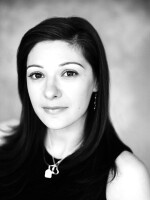MELISSA BLOCK, host:
From NPR News, this is ALL THINGS CONSIDERED. I'm Melissa Block.
ROBERT SIEGEL, host:
And I'm Robert Siegel.
There was an uproar in Iraq's Parliament today. The speaker had to be restrained after yelling at lawmakers who turned up too late to allow the session to go ahead as scheduled. The legislature was due to extend emergency laws in place for the past two years, but the session was called off because of the lack of a quorum.
NPR's Jamie Tarabay reports from Baghdad.
JAMIE TARABAY: Sunni politician Mahmoud Mashhadani isn't a man who minces words. During his tenure as Parliament speaker, he's clashed with many of the lawmakers and voiced support for the Sunni-led insurgency that regularly attacks U.S. troops and their allies, including Iraqi government forces.
Today he, the prime minister and the defense minister waited two hours for lawmakers to turn up in sufficient numbers to convene the legislature, but to no avail. Eventually, Mashhadani emerged from the Parliament chambers to tell waiting reporters the session had been called off. Just then, another Sunni lawmaker walked in, saying enough members had arrived to begin the session. At that point, Mashhadani erupted, attacking the tardy M.P. in front of the media.
Mr. MAHMOUD MASHHADANI (Sunni Politician, Iraq): (Through translator) Why don't you attend on time? You are incompetent and we will take disciplinary actions against you. You have a corrupt political agenda. Say what you want, but you have even made your attendance a political issue.
TARABAY: Parliament was supposed to meet today to endorse a series of edicts issued by Sunni and religious leaders at a reconciliation conference in the holy city of Mecca last month. The legislators were also due to renew the emergency laws that have governed Iraq since November 2004. Even though the laws expire today, lawmakers want them to remain in effect until they can next meet. Law professor Ab Jabr Ahmed of Baghdad University says that violates the constitution. But in Iraq today, that hardly matters.
Professor AB JABR AHMED (Baghdad University): (Speaking foreign language)
TARABAY: Constitutionally, they haven't the right. They haven't the right, he says, but I ask you really and for goodness sake, do you think that in Iraq we need to ask about the lawful thing? I don't think so.
Asked to comment, the U.S. embassy would only say that the failure to extend or renew the emergency laws won't affect U.S. troops on the ground, and the interior ministry says a Friday curfew included in the emergency legislation still stands. But analysts say the failure of Parliament to even meet on the security issue is a major indication of how ready Iraqis are to take over control.
Last week, Prime Minister Nouri al-Maliki angrily rejected U.S. suggestions that he'd agree to timelines for steps aimed at ending the violence here. Maliki says his is a sovereign government and won't yield to outside pressure. Yesterday, he ordered U.S. and Iraqi troops to dismantle checkpoints around Sadr City, a Shiite slum in Baghdad that's home to Iraqis loyal to radical cleric Moqtada al-Sadr. The roadblocks were part of a search operation for a missing American soldier.
While Shiites celebrated the lifting of the blockade, Sunni politician and Iraqi Vice President Tareq al-Hashemi criticized the prime minister's order in a statement on his Web site.
Mr. TAREQ al-HASHEMI (Iraqi vice president): (Through translator) Those checkpoints and blocks have resulted in a remarkable improvement in the security situation for the past few days. With due respect to Maliki, the security of Baghdad is the responsibility of the National Security Council.
TARABAY: But there's been no real let up in the violence in Baghdad. Bombs killed at least 10 people in the city today. At least three policemen were killed in a battle with gunmen in a mosque, and 35 unidentified bodies were recovered from different parts of the capital.
Jamie Tarabay, NPR News, Baghdad. Transcript provided by NPR, Copyright NPR.






